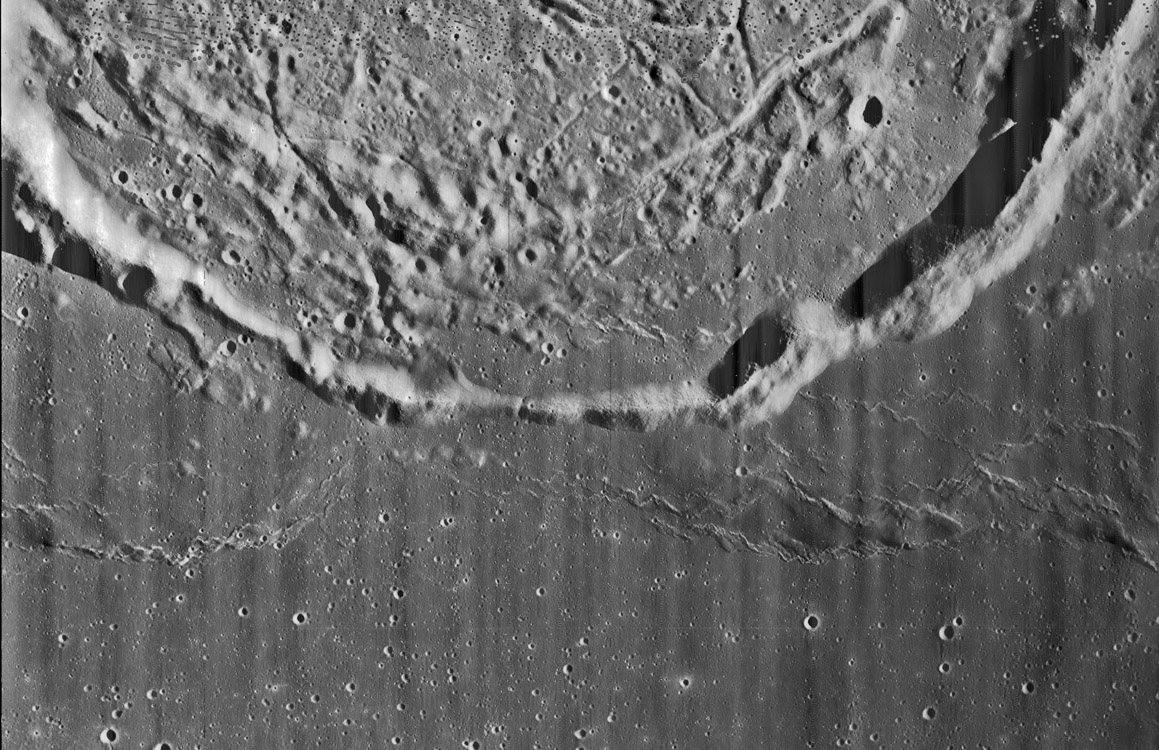
Lunar Orbiter V-177M image fromLPI Lunar Orbiter Photo Gallery
For decades I have wondered how mare lava got onto the southernmost floor of Gassendi. Like Fracastorius, Gassendi was formed on a tilted basin floor. Mare Nectaris overflowed the low rim of Fracastorius, leaving a lava-filled breached crater. At Humorum, the flooding did not quite overtop the low southern rim of Gassendi, but there is essentially identical mare material inside and outside the rim. From terrestrial images it often seems that small shadows suggest that the rim may have a narrow pass that allowed Humorum lavas to pour in. But this Lunar Orbiter V image from 40 years ago, which I don’t remember ever seeing, shows that the rim is unbroken - the lavas did not flow into Gassendi from Mare Humorum. Fractures created by the impact that formed Gassendi must have provided the conduits that allowed magma generated at depth - probably in the same magma chamber that fed Mare Humorum - to rise upward and erupt onto the crater’s floor.
Related Links:
Rükl plate 52
Get ready for Christmas giving and support LPOD when you buy ANYTHING from Amazon thru LPOD!
COMMENTS?
Click on this icon File:PostIcon.jpg at the upper right to post a comment.



